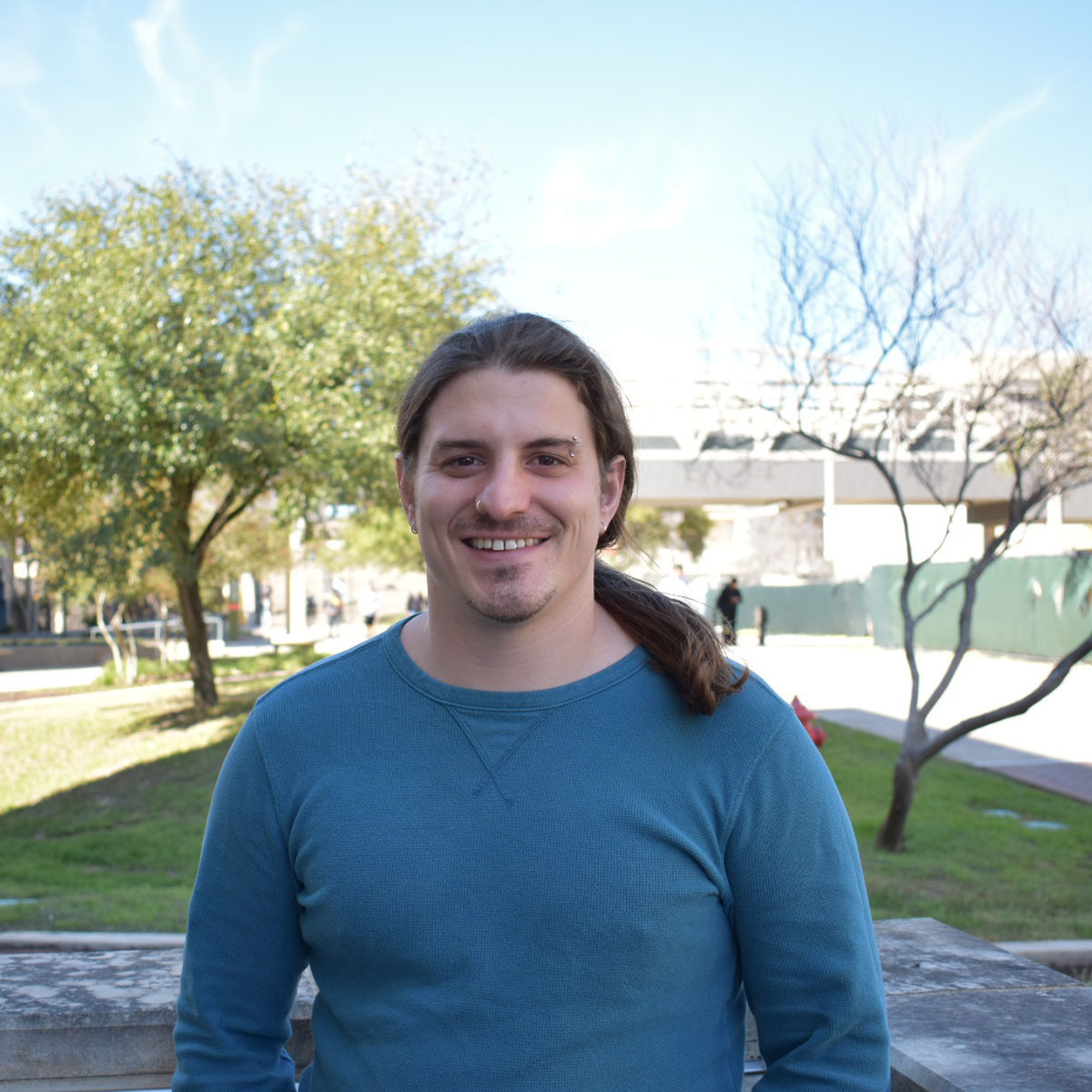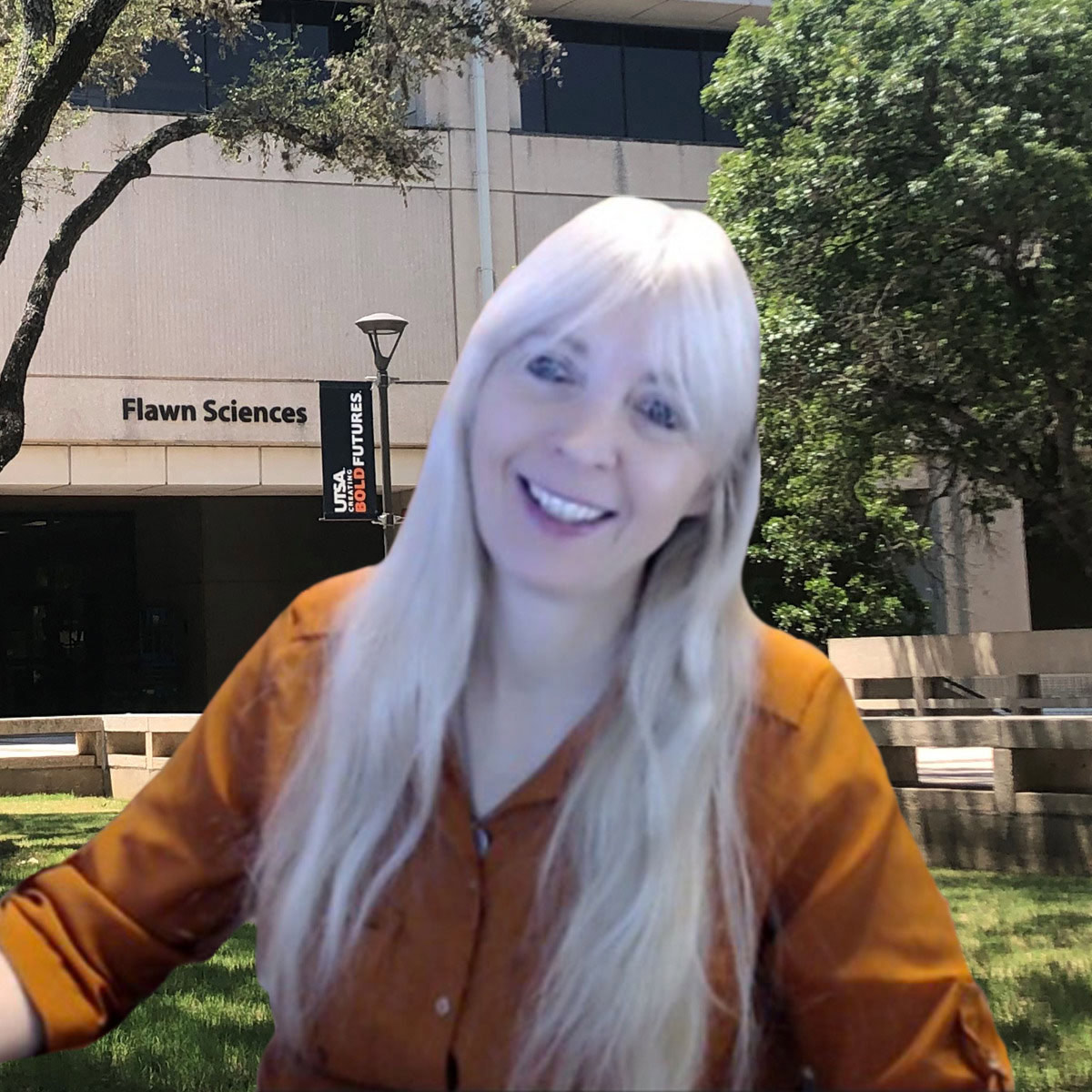Posted on April 28, 2020 by College of Sciences

Bryan Dimler, Mathematics M.S. Student
By Lauren Moriarty
Bryan Dimler originally graduated from UTSA with a psychology degree and an underwhelming feeling about his professional future. Although he enjoyed learning about psychology, the related graduate programs did not interest him, and he was equally uninspired about his immediate employment options with an undergraduate degree. "Around the same time, I became really interested in physics," Bryan remembers. "I grew up in a very religious home and I wasn't allowed to learn a lot of science because of the schools I went to. I got really interested in science and started reading a lot while working part time at a dermatologist office."
After returning to UTSA to study physics, Bryan discovered that he preferred math. "I realized that a lot of the sciences heavily rely on mathematics," he says. "At first, I felt like if I really wanted to learn science and wanted to understand it more, I needed to learn math. But then I started realizing it was really beautiful itself." Although Bryan enjoyed his advanced mathematical classes in elementary and middle school, he never thought mathematics would become his career. "My family was kind of turbulent," he explains. "Heading into high school that all really affected me and my grades. My confidence kind of plummeted, which changed my initial trajectory. I thought I was stupid, actually. I believed and thought that way for a long time and didn't believe I could do what I'm doing now. I've surprised myself a lot."
Bryan will graduate this semester with his M.S. in Mathematics and plans to attend the mathematics Ph.D. program at the University of California Irvine in the fall. "I was admitted by recommendation of a notable UCI faculty member due to my M.S. thesis work at UTSA that was done under the supervision of Dr. Mostafa Fazly and Dr. Changfeng Gui," he says. Bryan's thesis focuses on a conjecture regarding a particular class of solutions to the fractional Allen-Cahn equation that is in the spirit of a conjecture posed by the Italian mathematician Enrico De Giorgi in 1978 for the classical Allen-Cahn equation. His research has applications to the theory of minimal surfaces in differential geometry and the theory of phase transitions in mathematical physics.
Due to the coronavirus pandemic, Bryan is finishing his last semester at home. His own transition to online learning was smooth but, as a TA, he worries about the students in his Calculus I course. "Unfortunately, COVID-19 eliminated my favorite part of my job, which is standing in front of a class talking about math or working on math problems with students in class or office hours," he says. "It is very fun for me to make math meaningful to my students." Bryan has kindly provided online learning advice for his fellow Roadrunnerscheck out his suggestions below.
Bryan's Tips for Online Learning
- Get Organized
"Planning is very important for online learning, since you no longer have other people such as classmates or your instructor checking in on you or making sure you are doing all your work. It is easy to get sidetracked at home. I have fought against this by keeping a detailed To Do Journal. I have a master list with all my due dates and a daily list for my daily tasks. When I check all my boxes or it hits a certain hour, I put all my stuff up and relax, sort of like I'm on a normal work/school schedule. Though this hasn't been perfect, and I have certainly slacked off here and there to watch Netflix, I think it has overall been very useful in keeping me organized." - Utilize Your Textbook
"Read the chapters, take notes, make flow charts, etc. Online lectures are easy to zone out in (even more so than in-person lectures) since you can just get on your browser and hop over to YouTube or whatever. Also, it is hard for instructors to give a strong lecture virtually. Thus, being able to read a chapter in a textbook and consume the information is vital to online learning. Self-learning is a skill that will help you when we return to in-person classes and even in your professional career." - Use Your Resources Wisely
"It is good to become familiar with what online resources are out there for your class, like Khan Academy or MIT OpenCourseWare , should you need further assistance."

Explore the Mathematics Department!
Dedicated to research, high-quality instruction, and community engagement that embraces excellence by empowering its undergraduate and graduate students, especially those from backgrounds underrepresented in the mathematical sciences.
Recent Mathematics Spotlights
View More Spotlights




